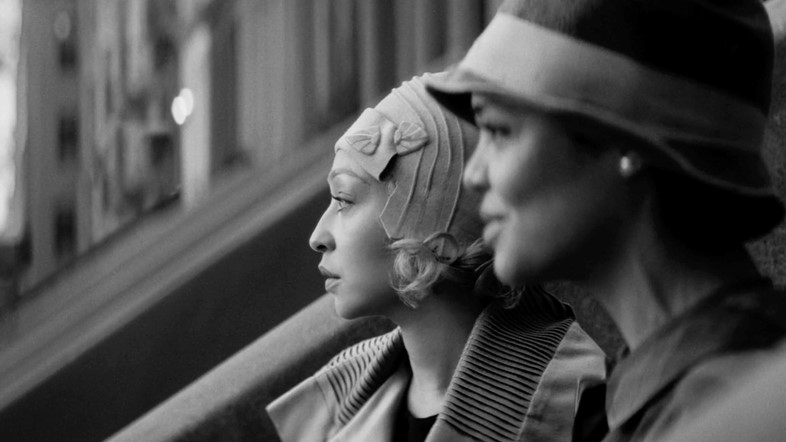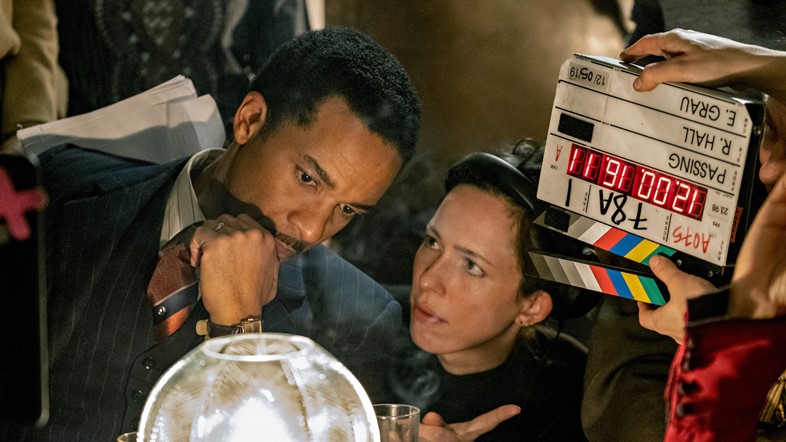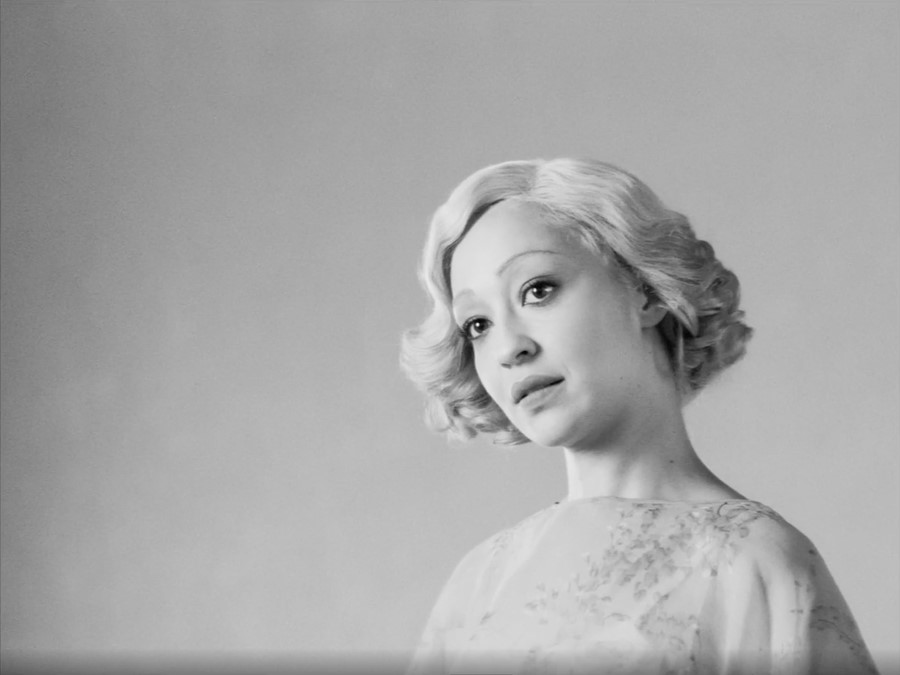The actor and filmmaker talks through her directorial debut, Passing – an elegant study of racial identity in 1920s America. “It forces everyone to reckon with how much they are showing up for themselves,” she tells Sagal Mohammed
Rebecca Hall’s directorial debut has been over a decade in the making. Passing, a sublime adaptation of Nella Larsen’s 1929 novel of the same name, sensitively explores the intricate layers of racial identity and the ways in which it can, at times, be moulded and manipulated – a topic very close to home for Hall. “I read the book 13 years ago and I immediately opened my laptop and started writing an adaptation because I was very, very moved by it,” she tells AnOther. Born to biracial American opera singer Maria Ewing and English theatre director Peter Hall, the story brought light to an unspoken truth within Hall’s own family: her paternal grandfather was a light-skinned Black man who lived his life passing as white. “[The book] gave me an awful lot personally, because I was aware at the time that there were perhaps some hidden mysteries around the racial identity of my mother and her father, but I didn’t have any language for it.”

The movie tells the story of two Black women. Irene, played meticulously by Tessa Thompson, is an educated housewife quietly manoeuvring through an emotional reckoning. She lives with her husband, a Black doctor played by Moonlight’s André Holland, and their two sons in Harlem, where the jazz era is thriving. Meanwhile, Ruth Negga is cast as Claire, Irene’s childhood friend who now spends her life in disguise as a white woman married to a wealthy (and inherently racist) white man played by Alexander Skarsgård. Once reunited, the two quickly reignite their spark, with their relationship narrated from the perspective of Irene. The depths of the plot transition into an all-encompassing tale of ‘passing’ not only in the context of race, but also in character, beliefs and sexuality. “[Larsen] is telegraphing that it’s about this one woman who’s hiding her racial identity. But actually it ends up being about the other woman – the one who’s not hiding her racial identity, but is arguably hiding everything else about herself,” explains Hall. “It becomes this dialogue about the ways in which our desires don’t measure up to the thing that we think we ought to be, or the thing that we think that society is telling us to be, which I think is universally applicable and very of today.”
In a world so busy boxing everyone into neatly labelled categories, Hall’s film delves into the idea of what freedom to live your truth really looks like, by mirroring the lives and identities of Irene and Claire. “It’s quite radical that Claire does whatever she wants, while Irene is totally bound by her own performance,” says Hall. “She struggles to feel free and ironically, Claire doesn’t.”
The casting is one of the biggest delights of the film, with both Thompson and Negga delivering poignant performances, whilst simultaneously displaying a natural chemistry. “I’ve watched Ruth for years, I saw her when she was doing theatre in London and immediately thought she’d be great for this,” says Hall, who first met the Ethiopian-Irish actor during a press tour in 2016, where Negga was promoting her 2016 breakout movie Loving while Hall was on the road for Christine. Thompson was another no-brainer for Hall: “I’d seen Tessa in a bunch of movies and always thought she had this quiet vulnerability. I’d never seen her do anything like Irene, which is a fiendishly difficult role to play. She’s so constrained, her emotions are stuck. I knew that whoever I cast had to be incredibly, technically dexterous and intellectually involved with it, but also utterly emotional and intuitive.” In the film, Thompson is all of the above. While Irene is never truly honest with herself, the internal battle she’s facing is portrayed brilliantly. “It’s incredibly difficult to reveal to an audience that you are having a mental breakdown when your character isn’t even aware that she is having one,” adds Hall. “Tessa feels her way into things but also engages with her brain. She’s so thoughtful and articulate, and so sensitive with material and understanding it. It was just the perfect fit.”

Shot entirely in luminous black and white, Hall’s choice of cinematography is as beautiful aesthetically as it is symbolically. “Black and white film is actually grey,” says Hall, “so it represents that grey area, which felt very poetic on a lot of levels. It also allowed me a lot of freedom to create a world that was shifty, where I could play with shadow and light in a way that makes things look very different from scene to scene. There are times where I’ve very deliberately overexposed the light and everything is oppressively white.” An example of this is the very first scene, when Irene and Claire first bump into each other at a hotel full of wealthy white people. “Then later, when they’re in Harlem it’s a lot darker and their faces change because it’s a completely different tonal environment,” she adds.
The release of Passing, which premieres on Netflix on 10 November, is not only a milestone in Hall’s career but a monumental moment in her personal life, particularly in her relationship with her mother. “We’re having incredible conversations. There are things she’s told me even in the last two years that I’ve never heard before. I think since she’s seen the film, she can talk about this stuff in a way that feels free,” she says, in reference to her grandfather. “That’s not to point the finger or say that she was hiding something from me, she just inherited something that was hidden.”
Hall hopes that all viewers feel this sense of freedom to break from the confines of societal pressures and influences that prevent them from living authentically. “This movie will tell you something about what you’re going through with your own identity,” Hall concludes. “It forces everyone to reckon with how much they are showing up for themselves, wholly.”
Passing is available on Netflix from 10 November.
